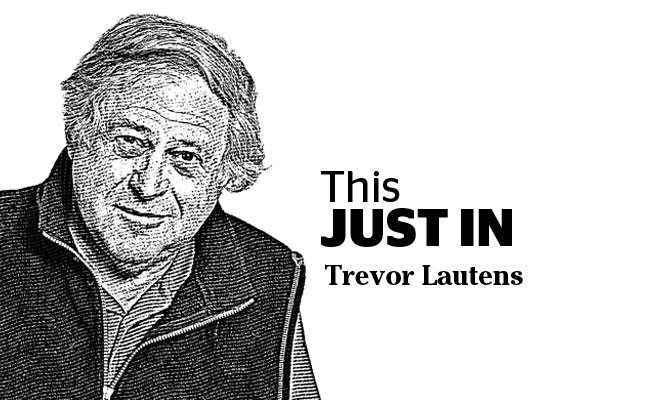Oh, start anywhere, but why not with the towering truth that his contemporary foes, over the smoke and fire of a war with more than 600,000 dead, treated Robert E. Lee more generously than hate-filled, healthy mobs 152 years later?
The latter, of course, and all of today’s safe bien pensants, would have courageously denounced slavery in the heart of the south if only they had been living at that time. Yeah, right.
President Abraham Lincoln mixed Christian forgiveness with shrewd practicalities – as shown in his astounding second inaugural address, “with malice toward none” – in not prosecuting the U.S. Civil War’s greatest general. The unlettered Union soldiers treated Lee with more respect than today’s sub-intellectuals, smug prigs and media humbugs. He served as president of what is now Washington and Lee University and, says Wikipedia, three U.S. stamps have honoured him.
Constant Reader knows well that this is no defence of slavery but mockery of the living twits who inject today’s beliefs into the past – I mean, like, why weren’t they as enlightened as we are now, like?
Black music, a common vehicle of bonding between “the others,” piped me in mid-teens to a bit more racial openness than then prevailing: I still raise a glass of gin every Dec. 15 in memory of Fats Waller, who died that day in 1943, and spending the intermission with Louis Armstrong when he played Dundas Arena near Hamilton in 1951 was a life highlight, his autograph “To a young man with a cornet” treasured forever – the famous chops up close looked awesomely like raw, red beef or a boxer’s kisser.
As recently as 60 years ago (dry jest, that “as recently as”) I became fascinated by the Civil War, darting 800 or 900 miles in a weekend in my Morris 1000, from its tinderbox of Harper’s Ferry to Appomattox Court House where it ended. And, in between, Gettysburg, Antietam, and eventually Lincoln’s birthplace, boyhood home, adult home, Washington monument, and Ford’s Theatre where he was shot. And, yes, beautiful Charlottesville.
Near New Liberty, W. Va., around 1960 I picked up a hitchhiking black teenager. While I babbled liberally about Lincoln to make him feel at ease, he sat rigidly in silent terror of what this young white guy with a strange accent in a weird little foreign car was up to.
But forgive me – enough of memory lane. Many historians now see the war as rooted in hard-Yankee manufacturers’ fury that slavery economically advantaged the south – did it? – but, come off it, many didn’t treat their own workers as much better than indentured servants, and the Knights of Labor, formed in Philadelphia a few years after the war, was obliged to be a secret society. When it comes to judgment on the past there’s enough moral pomposity and hypocrisy to go around.
But fast-forward and close to home: Unbelievably, Terry Glavin, one of Canada’s anointed Higher Journalists, wrote in the National Post:
“The state must maintain its monopoly on violence. … Allow fascists any room in the conversations of civilized people, and eventually it will become necessary to speak to them in the only dialect they properly comprehend – raw, relentless violence.”
But Glavin was far blunter interviewed that evening by Charles Adler on CKNW: He said, twice, that if the said fascists couldn’t be made to come round by other means, “we’ll have to shoot them.”
This moronic incitement, proclaimed in the context of tense recent events, could hardly signal more plainly a huge step forward (i.e. backward) in permissiveness of open civil war – toward what Hobbes long ago called “the war of all against all” – or serve better the further recruitment of extremists left and right. (Footnote: The voice of the CBC Radio reporter from Quebec almost broke in disbelief when stating that the violence there erupted not from the designated haters but from the anti-haters, the supposed good guys.)
Stigma is not a solid brick thrown at a select enemy but a liquid that runs to newly tarred social enemies, in this climate the “alt-right,” trendy media code for neo-Nazis. This is itself fascistic.
But – take heart, ordinary people. I end with this – stirring words I read decades ago, some slightly changed since, on a sundial at, appropriately, the University of Virginia at Charlottesville. Heed well:
Time is
Too slow for those who wait,
Too swift for those who fear,
Too long for those who grieve,
Too short for those who love, time is
Eternity.
Hours fly,
Flowers die,
New days,
New ways,
Pass by.
Love stays.
[email protected]
What are your thoughts? Send us a letter via email by clicking here or post a comment below.



